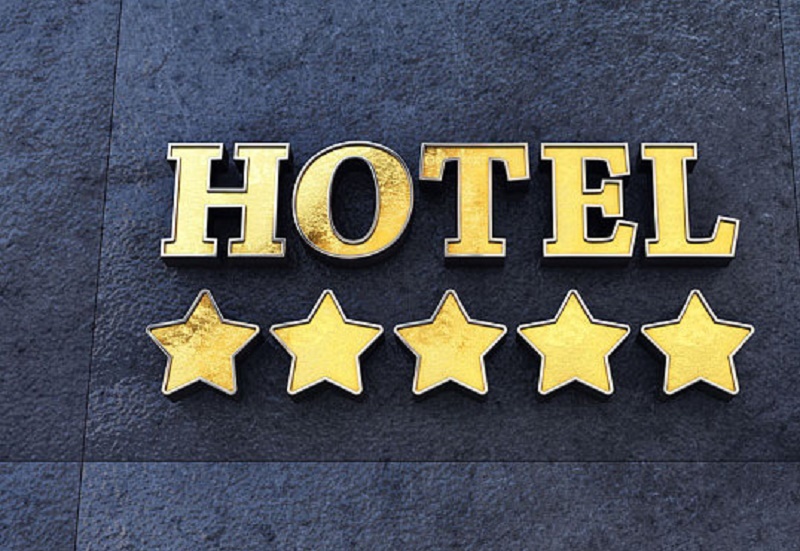My breakfast companion got caught up in traffic and made it into the restaurant at 10:59am. The restaurant stopped serving at 11am. I had informed the restaurant manager that he was running late and to please be accommodating.
However, when we attempted to order, we were told in no uncertain terms that breakfast was over and that our request could not be fulfilled.
This, sadly, not uncommon disparity between number of stars and enjoyment of stay has left most Millennials obsessed with user-generated reviews before they book their stay – how else are they going to ensure they get what they want?
Friedlander comments: “The lack of a universally accepted definition of what differentiates star categories – and inconsistencies across destinations – is part of the problem.”
A lot of times a budget hotel will serve better breakfast than a four star, or the wi-fi offering at a no-frills inn will be vastly better than at a large luxury chain, where guests find they have to pay for working wi-fi.
In short: a star rating doesn’t have anything to do with offering Millennial travellers what they really want.

| Advertisement |
Hotelier’s tips for how to market your hotel to Millennial leisure travellers:
1) Offer all-day breakfast, or at least until noon or 1. Several of my friends and colleagues mentioned restrictive breakfast times as one of their pet peeves. One of them commented, “Why would a resort or luxury hotel in a holiday destination offer breakfast only until 10:30am? That’s when I wake up!”
2) Offer wi-fi. Offer it for free. Offer it everywhere. Offer it at fast speeds. And do not, whatever you do, require guests to continually log in to access the wi-fi.
3) Service, service, service. Hotelier has already written about the disparity of service found in hotels throughout the region. And nothing will motivate a guest to take to TripAdvisor for a nasty review more than inflexible, unfriendly service. Empower your staff to go the extra mile – if you’re so caught up in following the rules that your staff are not encouraged and empowered to treat guests as unique cases rather than numbers, you will lose revenue.
4) Have detailed and specific property information on your brand.com website, including: room size; exact location map and how far the property is to public transport, landmarks, etc.; cancellation policy; link to TripAdvisor reviews; offer an option for leaving reviews on your own site and put as much effort as possible into getting guests to leave reviews on your site.
5) Use Facebook, Twitter and Instagram to offer loyalty programmes, rewards and contests – though OTAs are here to stay, make loyalty and rewards programmes work for Millennial mind sets – have an online form which takes a minute to fill in, and link that to your social media, as well as to any OTA bookings (this can be done by emailing the guest as soon as the booking comes in to let them know that loyalty members get a 10% discount on all bookings, as well as ensuring that front desk staff target OTA bookings to let them know about loyalty programmes).
6) Consider an automatic enrolment into loyalty programmes that guests can opt out of.
7) Offer online check-in and check-out, especially if you’re a city hotel (Yotel’s model for this is fool-proof), but have a few front office staff on hand should guests need personalised services.
8) You’ll never beat an OTA for aggregate of information in one place, so make sure you work with them – list your property and all its offerings on as many as possible: Expedia, Hotels.com, Booking.com, Kayak, Trivago, Skyscanner, Opodo, etc. Make sure that the same details and deals can be found throughout the site – and yes, luxury properties, I’m talking to you; no one thinks less of a five star property or lush resort being on an OTA site. OTAs are the biggest marketing tool you can use, so take advantage of it.
9) It’s a no brainer but many hotels don’t have a standardised approach to it – aggregate your reviews by percentage of complaints about certain subjects and conduct targeted training to ensure issues are ironed out.
10) If there are any issues with your hotel – construction, loud local holidays, political unrest – put it on your site – if you give guests the information, you can control how it’s conveyed and put their minds at rest that your property is still safe and comfortable. One of the worst things you can do is neglect to mention it – guests will head straight for Negative Review Land if they arrive at your door and discover construction next door. This is especially relevant to GCC hotels, where so much construction occurs.
11) Offer the lowest price. You would think this goes without saying, but I’m constantly surprised at how many hotels are outpriced by OTAs. And don’t make guests find a lower price and THEN offer to match it – most guests aren’t willing to spend that time – they’ll go straight to sources they know have the cheapest prices.
After all, if guests can’t get the best deal from you, they’ll hardly view you and your online marketing channels as the best source of information.









 Search our database of more than 2,700 industry companies
Search our database of more than 2,700 industry companies










Jul 23, 2015 , France
One of the things for UGC reviews as well is that you can mostly ignore the one-star and five-star reviews, as those are done by people who either loved the place to bits or hated it, so the review is going to be biased for/against the hotel. What I always look at instead is the 2-3-4 star review...